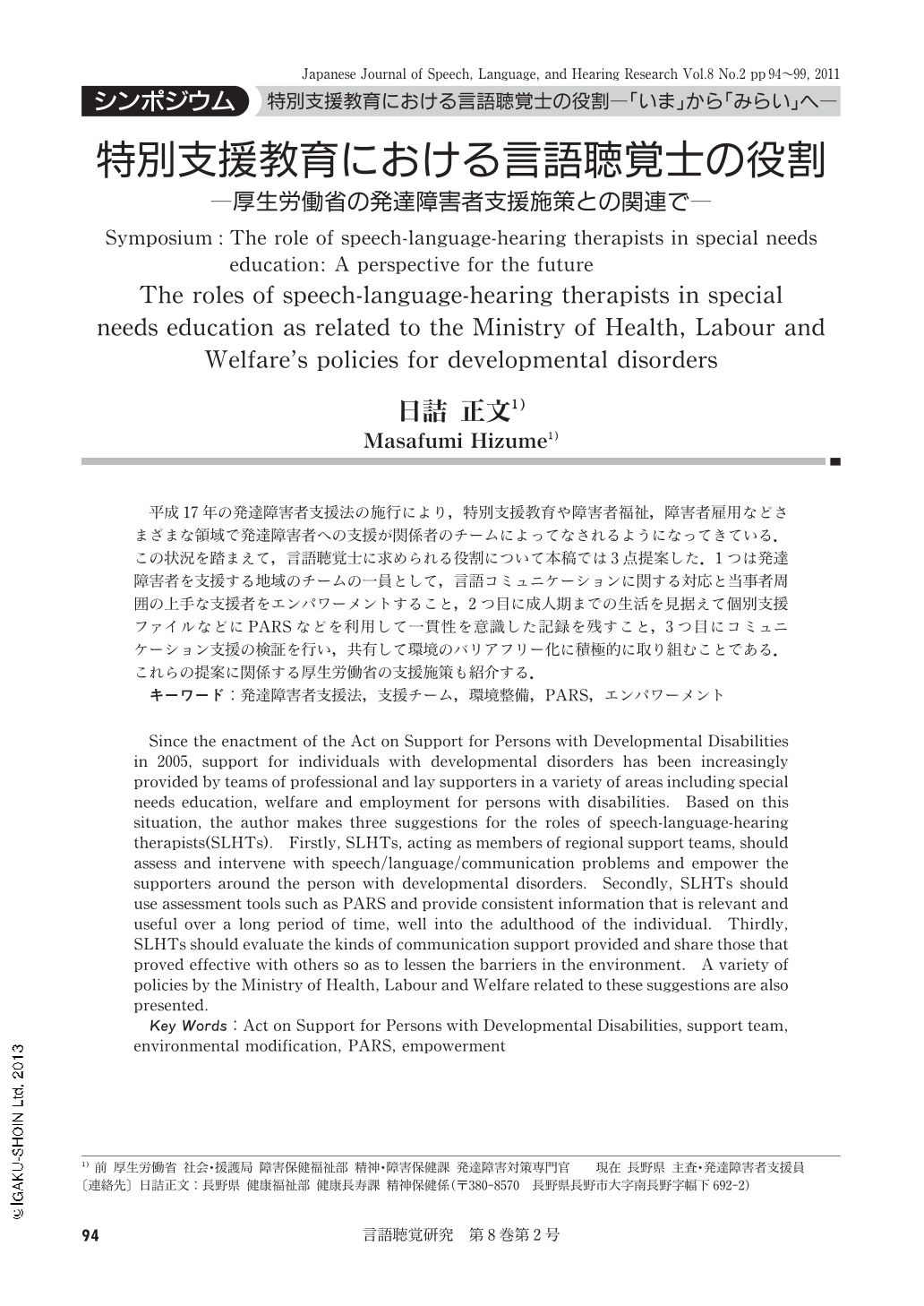Japanese
English
- 有料閲覧
- Abstract 文献概要
- 1ページ目 Look Inside
平成17年の発達障害者支援法の施行により,特別支援教育や障害者福祉,障害者雇用などさまざまな領域で発達障害者への支援が関係者のチームによってなされるようになってきている.この状況を踏まえて,言語聴覚士に求められる役割について本稿では3点提案した.1つは発達障害者を支援する地域のチームの一員として,言語コミュニケーションに関する対応と当事者周囲の上手な支援者をエンパワーメントすること,2つ目に成人期までの生活を見据えて個別支援ファイルなどにPARSなどを利用して一貫性を意識した記録を残すこと,3つ目にコミュニケーション支援の検証を行い,共有して環境のバリアフリー化に積極的に取り組むことである.これらの提案に関係する厚生労働省の支援施策も紹介する.
Since the enactment of the Act on Support for Persons with Developmental Disabilities in 2005, support for individuals with developmental disorders has been increasingly provided by teams of professional and lay supporters in a variety of areas including special needs education, welfare and employment for persons with disabilities. Based on this situation, the author makes three suggestions for the roles of speech-language-hearing therapists(SLHTs). Firstly, SLHTs, acting as members of regional support teams, should assess and intervene with speech/language/communication problems and empower the supporters around the person with developmental disorders. Secondly, SLHTs should use assessment tools such as PARS and provide consistent information that is relevant and useful over a long period of time, well into the adulthood of the individual. Thirdly, SLHTs should evaluate the kinds of communication support provided and share those that proved effective with others so as to lessen the barriers in the environment. A variety of policies by the Ministry of Health, Labour and Welfare related to these suggestions are also presented.

Copyright © 2011, Japanese Association of Speech-Language-Hearing Therapists. All rights reserved.


